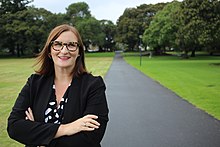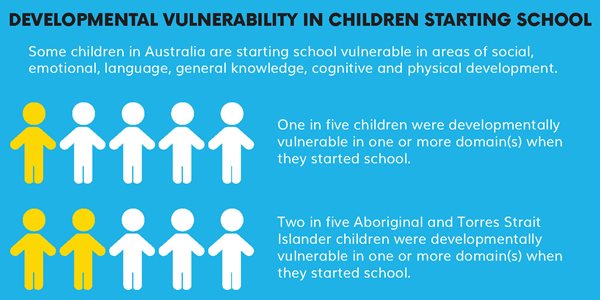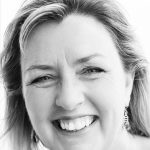Children are too important for politics
One third of Australia faced an election last weekend. We've been bringing you the NSW issues in some detail because, more than usual, this state contest and the Victorian election before it, have featured promises with national implications.
The re-elected Premier promised NSW “could have it all” – and the sector expects ‘have it all’ to apply to the state’s youngest citizens, too.
So what happened in NSW on Saturday, and why should you care?
Liberal/Nationals re-elected
While there’s still tense counting in a few key seats, NSW Premier Gladys Berejiklian and her government have been returned with a clear majority for another four years.
 NSW Minister for Early Childhood Education Sarah Mitchell MLC
NSW Minister for Early Childhood Education Sarah Mitchell MLC
You can anticipate some portfolio changes in the Berejiklian Cabinet, but CELA CEO Michele Carnegie has expressed hope for continuity and retaining the current Early Childhood Education Minister, Sarah Mitchell in her role.
“From the sector’s point of view, continuity really matters,” Michele said.
“Early childhood education is complex, governed by a raft of legislation, regulations and licensing requirements.
“There’s a great deal Ministers need to understand about the rationale for the National Quality Framework, the pedagogy of play-based learning, the diversity of family and child needs, and recognising the professionalism of the education workforce.
“Retaining an interested Minister in the portfolio gives us a sound launching pad for changes that are required urgently.”
A promise is a promise
 Michele Carnegie
Michele Carnegie
Michele says Minister Mitchell’s most recent pre-election statements demonstrated commitment to improving funding and quality. The fact that both parties paid attention to, and worked with, the combined sector blueprint for priorities is also encouraging.
“In the final week before the election Minister Mitchell shared a detailed statement [links] with Amplify readers, committing to ongoing improvements in funded places for children in quality preschool programs for two days a week, for the two years before formal schooling,” Michele said.
“We expect the NSW Government to demonstrate this commitment in dollar terms in its next budget.”
What’s on offer?
Ahead of the election, Minister Mitchell pointed out there had been some progress made in funding places for three-year-olds, in community preschools.
“The NSW Liberals & Nationals have been putting NSW’s money where its mouth is for three year olds. We have already made allocations for this funding in last year’s budget and over the forward estimates. I think we have placed ourselves in the best possible position to negotiate with the Commonwealth for increased, longer term funding for children for the two years before school, no matter which party holds power in Canberra.” [emphasis added]
One of the most important actions we can expect, says Michele, is that NSW will join other states arguing strongly for additional Federal funds under a permanent national agreement for Universal Access to quality preschool programs for every child for at least two days a week, for the two years before formal schooling.
What about OSHC? (OOSH in NSW)
In dialogue with CELA, Minister Mitchell also expanded on her government’s commitments to outside school hours care.
In summary, she says their OOHC strategy is worth $120 million over four years, including:
- $50 million for more funding to help schools buy new equipment and expand
or establish new OOSH facilities, especially in high demand areas
- $40 million in rental subsidies, up to $15,000 per annum, to eligible service
providers to reduce the cost on parents who utilise OSHC services
- $20 million to facilitate implementation of services and help tailor solutions for
school communities where a standalone service may not be viable, including
smaller schools and rural and remote communities
- a specialist OSHC team to help provide bespoke solutions, coordinate
services, take the hassle out of managing contracts for schools and offer
providers more support than ever before
- an online portal to allow parents and carers to register interest, search
for and book student places online.
Many of these proposals require further details to be released and considered by the sector. Michele says CELA is encouraged by the Minister’s statements about collaboration as this policy is rolled out.
Is there more?
There is more, and Michele says the sector will be following progress to the next NSW budget closely. For example, Minister Mitchell’s statement last week suggests that the $6 million currently committed for the NSW Early Childhood Workforce Strategy has room to grow, in consultation with the sector.
“Labor says they are going to start a $10 million Early Childhood Education Professional Development program and engage with the sector on a long-term roadmap. They forget that we have already launched our $6 million Early Childhood Education Workforce Strategy with plenty more consultation to come.”
The sector has asked for NSW to extend the strategy from its current short-term goals to a long range, 10 year plan with substantial consultation and practical outcomes that raise professional development for all educators but especially those facing particular disadvantage in rural and remote regions.
2018 AEDC release
The results of the 2018 national Early Childhood Development Census (AEDC) show that children in all states and territories are still experiencing unacceptably high levels of vulnerability. The report, says Michele, is further evidence that funding for early childhood education needs to be seen as an integral part of the much larger education budgets at state, territory and national levels.
“The 2018 report shows some heartening progress for children in some parts of Australia, and in some domains – but in other areas and domains the outcomes remain deeply troubling,” she said.
“How can we tolerate a national outcome where only 3 out of 4 children are ‘on track’ in the Social Domain, and around the same number meet the outcomes in the Emotional Domain? It is not tolerable because we know that two years of fully funded participation in a quality preschool program with qualified educators, will boost children across every one of the AEDC domains.”

How does the state election outcome affect national decisions?
The federal election must be held before the end of May, with many predicting 11 May as the poll date. Ahead of this, the Morrison government will release its budget (2 April) followed by a budget reply from Opposition leader Bill Shorten.
Michele says the sector – working together consistently now for months to present solutions to state and federal governments – hopes to see both parties acknowledge early childhood deserves a larger slice of the education budget.
It is not acceptable to view early childhood education as an economic tool to facilitate parents into work.
“If Labor is elected we expect Bill Shorten to deliver on the promises he made in Victoria and New South Wales and to apply those additional funding commitments to every Australian jurisdiction. We expect this will not be contingent on tax savings,” she said.
“If the current government is returned, we hope to see them respond to the compelling evidence for quality early learning as an educational investment for children and the wider community.
“It is not acceptable to view early childhood education as an economic tool to facilitate parents into work.
“Quality early learning for two years in a preschool program at least two days a week is essential for every Australian child and essential for Australia if we hope to return to a higher level of performance in OECD measurements.
“It must receive a larger slice of the education budgets in every Australian jurisdiction from this year forward.”
Meet the author

Bec Lloyd is the founder and managing director of Bec & Call Communication, providing professional writing, editing and strategy services to the school and early childhood education sector since 2014. In 2018 she launched UnYucky mindset and menus for happier family mealtimes. Formerly the communications lead at ACECQA and BOS (now NESA), Bec is a journo and mother of three who produces Amplify for us at Community Early Learning Australia.